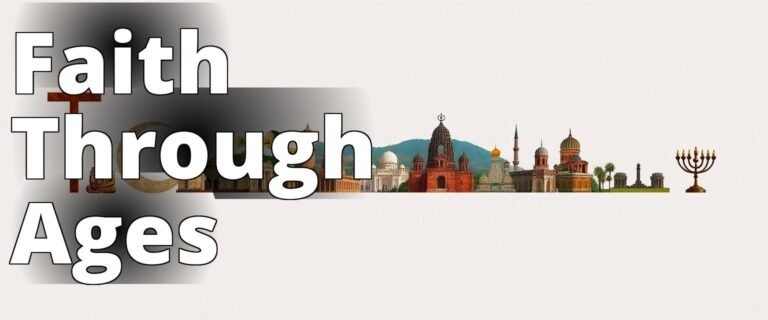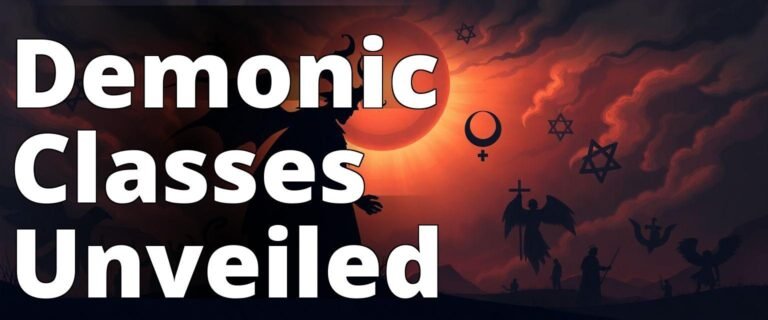The God Who Wasn’t There
Is it possible that the gods we worship are merely reflections of our own imaginations? Or do they exist outside our minds, influencing the world in ways we cannot comprehend? These questions are at the heart of “Comparative Mythology and Gods,” a compelling exploration of the divine and its origins. This article delves into these questions by examining historical and cultural contexts, drawing from scientific research and philosophical inquiry.
Understanding Comparative Mythology
Explore the complexities of comparative mythology and the origins of deities, questioning whether humans created gods or vice versa.
– Comparative mythology reveals how different cultures interpret gods, showcasing similarities and differences in their narratives.
– The question of whether God created man or man created God is explored through various mythological frameworks, offering insights into human belief systems.
– Brian Flemming’s film, “The God Who Wasn’t There,” serves as a thought-provoking analysis of these themes, encouraging viewers to reflect on their own beliefs and the nature of divinity.
The God Who Wasn’t There: A Film by Brian Flemming
Brian Flemming’s documentary, The God Who Wasn’t There, challenges the conventional understanding of religious belief and its historical foundations. This film scrutinizes the existence of Jesus and other deities, questioning whether they are historical figures or mythological constructs created by humanity. Flemming’s work is pivotal in the discourse of comparative mythology, as it prompts viewers to question the narratives they’ve grown up with.

Insider Tip:
Dr. Elaine Pagels, a renowned scholar of religion, suggests starting with primary sources of religious texts to better understand the origins of these beliefs.
For those unfamiliar with the topic, the documentary serves as an eye-opener, introducing the idea that many religious figures might have been invented or adapted from earlier mythologies. The film points to similarities between Jesus and earlier deities like Horus, Mithras, and Dionysus. By comparing their stories, Flemming encourages viewers to consider whether these figures were crafted to fulfill societal needs rather than being divine entities.
According to a study published in the Journal of Religion and Society, the creation of religious figures could be a response to the psychological need for control in an unpredictable world. This perspective aligns with Flemmings assertions, suggesting that belief systems are constructed to offer comfort and order amidst chaos.
Watch the Trailer
Before diving deeper, lets take a moment to view the trailer for The God Who Wasn’t There. It offers a glimpse into the provocative questions and themes that the documentary explores.

Thought-Provoking Question:
Have you ever considered why certain gods share similar stories across different cultures? Could it be that these are not coincidences but rather a collective human need to answer life’s existential questions?
The God Who Wasn’t There: Unveiling Historical Context
The documentary also delves into the historical context of religious beliefs, shedding light on how these narratives were shaped by the cultures that created them. It becomes evident that religion is often intertwined with the socio-political climate of its time.
Historically, gods have served as tools for legitimizing power, unifying communities, and establishing moral codes. Consider the ancient Egyptian pharaohs, who were deemed gods on Earth. This divine status not only solidified their rule but also provided a framework for societal order. Similarly, the Roman Empire adopted Christianity to unify its diverse populations under a single ideology.

Scientific Insight:
A 2018 study in Nature Human Behaviour highlights that societies with complex social hierarchies often develop religions with moralizing gods to maintain social order and cooperation.
By examining these historical patterns, we can better understand why certain religions gained prominence and how they adapted over centuries. These insights offer a fresh perspective on contemporary beliefs, encouraging us to consider how our views might be similarly influenced by current social and political dynamics.
Watch the Trailer: Engaging with the Narrative
Watching The God Who Wasn’t There trailer reveals the film’s narrative approach, which combines historical analysis with contemporary interviews. This method engages viewers, encouraging them to examine their beliefs critically.

Question for Reflection:
Do you think modern religions will evolve in the same way ancient ones did? How might they change in response to the social and technological advancements of today?
Did God Create Man, or Man Create God?
This age-old question lies at the heart of comparative mythology. By examining the similarities between gods across cultures, we are led to question whether they are inspired by divine revelation or human invention.
Historical Evidence
The Epic of Gilgamesh, one of the oldest known pieces of literature, shares striking similarities with later biblical narratives, such as the story of Noah’s Ark. This suggests a cultural exchange and adaptation of myths over time. Similarly, the Greek god Dionysus and the Roman god Bacchus are essentially the same deity with minor differences, indicating that gods often evolve from one culture to another.

Expert Opinion:
Dr. Karen Armstrong, a historian of religion, argues that gods are reflections of human aspirations and fears. They embody the qualities we wish to emulate or the dangers we aim to avoid.
Modern Implications
In modern times, we see new belief systems emerging, such as the Church of the Flying Spaghetti Monster, which satirizes traditional religions. This phenomenon demonstrates that as society evolves, so too does our conception of the divine.
Thought-Provoking Question:
Could the gods we worship today be replaced by new figures in the future? What does this say about the permanence of religious belief?
Conclusion
The exploration of comparative mythology and gods reveals that our understanding of divinity is deeply intertwined with human history and culture. By examining past and present belief systems, we are encouraged to question the origins of our own beliefs and consider how they might evolve in the future.
Ultimately, whether God created man, or man created God, remains a deeply personal question. It challenges us to reflect not only on our beliefs but also on the societal structures that shape them. As we continue to explore these themes, we open ourselves up to a deeper understanding of humanity and the narratives we create to make sense of the world.
For more insightful explorations into film and culture, visit Thin White Lies.

By engaging with documentaries like The God Who Wasn’t There and considering the historical and cultural contexts of religion, we can better appreciate the complex relationship between humanity and the divine. As we question what we think we know, we embark on a journey of discovery that enriches our understanding of both the past and the present.
Q & A
Q: Who are the major gods in comparative mythology?
A: Major gods include Zeus, Odin, Ra, and Vishnu across various cultures.
Q: What is the significance of gods in human creation myths?
A: Gods often symbolize humanity’s quest for understanding existence and identity.
Q: How do different cultures view the creation of man by gods?
A: Cultures vary greatly; some see gods creating man, while others depict evolution.
Q: Why do some argue man created gods instead of the reverse?
A: Many believe that gods are human constructs to explain life’s mysteries and fears.
Q: How can comparative mythology help us understand our beliefs?
A: It reveals common themes in creation stories that shape our cultural perspectives.
Q: What if I think creation myths are just stories without truth?
A: Even if myths seem fictional, they reflect deep human truths and values.







